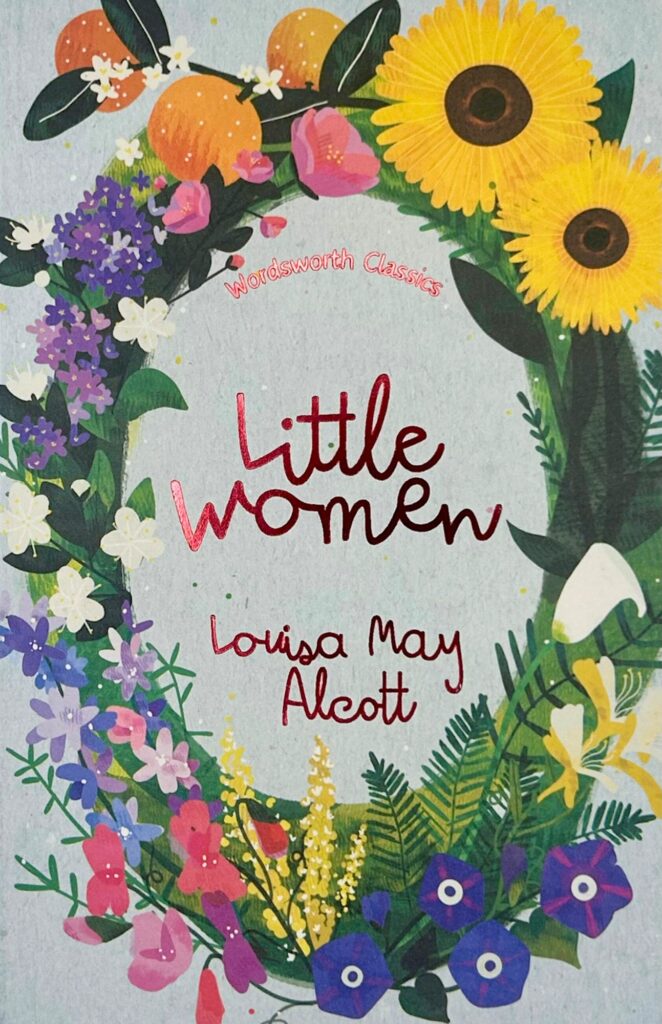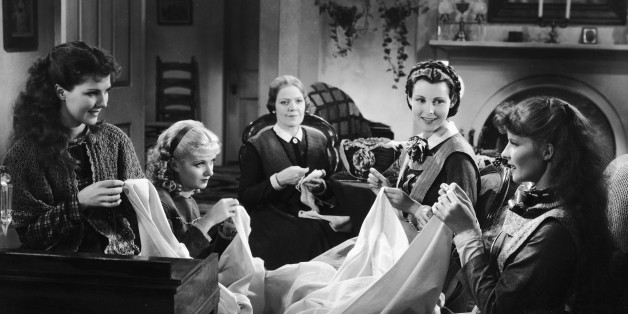
Stefania Ciocia muses over Little Women
Little Women and the test of time: Stefania Ciocia muses on a childhood favourite
[Hard as it is for me to conceive that there might be people who are not acquainted with the story of Meg, Jo, Beth and Amy, I should warn readers that this piece contains plot spoilers.]
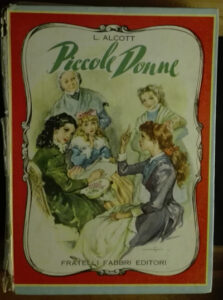 Little Women is the first proper book I read on my own as a child. The archaeological evidence bears out this memory: I was given a copy of Piccole Donne the year I started school, as shown by my Nonno’s dedication, inscribed “with infinite tenderness” and elegant penmanship. It is one of the best presents I have ever had in my life. I must have read that book at least once a year until I graduated to the pleasures of unabridged novels, and I know I am not alone in these compulsive returns to the world of the March sisters. I also have dim recollections of play-acting their story with a neighbour of mine. There were only two of us. She was an only child, and my brother didn’t get roped into being Laurie, the honorary fifth sibling. It’s not as if the gender-blind casting was out of the question. To us girls, eight and nine years old, Laurie and the rest were simply not an integral part of the narrative.
Little Women is the first proper book I read on my own as a child. The archaeological evidence bears out this memory: I was given a copy of Piccole Donne the year I started school, as shown by my Nonno’s dedication, inscribed “with infinite tenderness” and elegant penmanship. It is one of the best presents I have ever had in my life. I must have read that book at least once a year until I graduated to the pleasures of unabridged novels, and I know I am not alone in these compulsive returns to the world of the March sisters. I also have dim recollections of play-acting their story with a neighbour of mine. There were only two of us. She was an only child, and my brother didn’t get roped into being Laurie, the honorary fifth sibling. It’s not as if the gender-blind casting was out of the question. To us girls, eight and nine years old, Laurie and the rest were simply not an integral part of the narrative.
I don’t know how but I managed to convince my friend to be Meg and Amy, my least favourite sisters. (Amy, I truly disliked it with a passion.) I kept for me the other pairing set up in the novel: Beth and, most importantly, Jo. I was strong-willed and crotchety like her. I admired her free spirit. I dreamed of becoming a writer. Meanwhile, I could think of no greater bliss than to retreat to a sunny garret to read books and munch crisp apples. If being Jo meant that my other role in our game ended in premature tragedy, that seemed a fair deal to me. Beth’s musicianship, no matter how short-lived, was further compensation for her demise anyway – though, I realise now, the same did not apply to Amy’s own artistic talent, which did nothing to absolve her of her silly pretensions in my eyes. My tunnel vision only registered her frivolity, and I wanted no truck with that. I think I have mellowed out, a bit, with age. So, how does Little Women stand up to the test of time? I’m thinking here about my own modest life span to date, rather than the hundred and fifty years since its original publication (Part 1 was issued in early October 1868, Part 2 – initially printed out in a separate volume, as Good Wives – in April 1869). Let’s see.
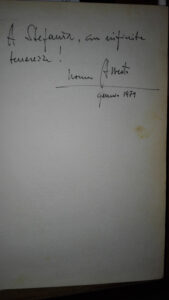 I didn’t go back to the entire novel, in English, until my early thirties, when I had the misguided idea of putting it on the syllabus of a Children’s Literature course I was lecturing on at the time. Big mistake. We revisit our childhood crushes at our peril. The teaching context didn’t help either. I was subjecting some of the most cherished memories of my life-long affair with books to rigorous intellectual analysis. The novel’s feminist credentials started to look very iffy. I came across Angela Estes and Kathleen Lant’s brilliantly suggestive Gothic reading of the novel: the traditional feminine narrative arc, not to mention good manners, demand that Jo should be tamed or excised from the story. And so it is Jo who is metaphorically killed off by Alcott, while the body-snatching Beth surreptitiously takes her place as a proper little woman. And how could anyone fail to see Jo’s creative self-mutilation, when she chops up “her first-born” for publication?
I didn’t go back to the entire novel, in English, until my early thirties, when I had the misguided idea of putting it on the syllabus of a Children’s Literature course I was lecturing on at the time. Big mistake. We revisit our childhood crushes at our peril. The teaching context didn’t help either. I was subjecting some of the most cherished memories of my life-long affair with books to rigorous intellectual analysis. The novel’s feminist credentials started to look very iffy. I came across Angela Estes and Kathleen Lant’s brilliantly suggestive Gothic reading of the novel: the traditional feminine narrative arc, not to mention good manners, demand that Jo should be tamed or excised from the story. And so it is Jo who is metaphorically killed off by Alcott, while the body-snatching Beth surreptitiously takes her place as a proper little woman. And how could anyone fail to see Jo’s creative self-mutilation, when she chops up “her first-born” for publication?
Nearly a decade on and, tempted by the recent BBC Radio 4 adaptation, I have gone back to Little Women once more. This time the relish I have felt in renewing my acquaintance with Jo and her sisters has surprised me. Yes, the novel is sentimental and didactic, and it suffers from occasional longueurs. And yes, while it’s cold and bleak outside, and political debate often sinks to the level of shouting and bullying, Little Women has offered me the incomparable comfort of hanging out with good, kind, considerate people. They respond to nastiness with the generosity of spirit, and – would you believe it? – the strategy tends to pay off. I should try that sometimes. (Christopher Columbus, I have mellowed out!)
Perhaps added maturity is what I bring to my more recent encounter with Little Women. The Gothic interpretation of the novel still works as a compelling piece of scholarly writing, but it rings less true to me in its neglect of what the process of growing up does to actual people. I no longer buy Estes and Lant’s argument that a “new zombielike Jo” – and the reader’s willing suspension of disbelief, or short memory span, about her true personality – is the only explanation to account for her metamorphosis from wild colt into “the blushing, halting maiden and the dutiful wife and mother” of the final chapters.[1] While a decade ago I cried foul play, now I am inclined to concede that there is nothing suspicious about the softening of Jo’s intransigence, and about her volte-face as the self-appointed “old maid” in the family. Why shouldn’t Jo change in adulthood? I know I have. Jo’s loss of independence is counterbalanced by gains in her private life, with all their attendant responsibilities. Most of us – if we are lucky – are called upon to make these compromises, and make them willingly.
What of the fact, though, that Jo must give up writing her sensation novels before she can deserve the love of a good man? Isn’t that a sure sign that her creativity – and earning power – must be curbed as a condition for the traditional happy ending? We are getting closer to the mark with this observation – and it might be for this reason that the well-paced Radio 4 dramatization has glossed over Professor Bhaer’s censorious attitude towards Jo’s thrillers. Still, Alcott is careful not to suggest that Jo can’t be a writer and a wife and mother. If anything, at the close of the novel Jo declares with characteristic optimism that the book she hopes to write one day “will be all the better for such experiences and illustrations such as these”. The words are said as she gestures to her extended family and the boys’ school she has set up at Plumfield.
Contrary to Professor Bhaer’s negative judgment, sensation fiction is now widely recognized as the valuable mode of expression for social anxieties that it was, especially for women writers, in the mid-to-late 19th century. Even so, Jo’s stint in the field of lurid melodrama is dictated by economic necessity, rather than by her own artistic proclivities. Jo writes in order to make money. The irony is that that’s exactly what Alcott did with Little Women. She wrote it almost under duress, against her better instincts: “the publisher thought it flat, so did I […] We found out our mistake, & since then, though I do not enjoy writing ‘moral tales’ for the young, I do it because it pays well.”[2] Better, we might add, than the sensation fiction she had previously published.
Alcott’s take on Jo’s marriage similarly speaks volumes: just like her author, Jo “should have remained a literary spinster”. However, following the tremendous success of Part 1, “so many enthusiastic young ladies wrote to me clamorously demanding that she should marry Laurie or somebody, that I didn’t [sic] dare to refuse & out of perversity went & made a funny match for her.”[3] An earlier entry in her diary – the date is October 1868 – registers Alcott’s impatience with her young readers’ curiosity about “who the little women marry as if that were the only end and aim of a woman’s life. I won’t marry Jo to Laurie to please anyone.” She did keep her word and, all things considered, managed to represent marriage as a surprisingly egalitarian state, in which the two parties contribute to each other’s emotional growth. Socialization along traditionally feminine lines extends both to male and female characters in this novel of family life.[4]
On one point though, I still agree unreservedly with Estes and Lant’s analysis: the Jo remembered best by those of us who read Little Women as children is the rebellious tomboy, and not the little woman she may or may not have become by the end of the novel. For me, she’s the aspiring writer caught up in her creative “vortex”, the gregarious prankster, the hermit reading books and munching apples in a room of her own. She’s the spirited, mischievous, voluble work-in-progress, busy figuring out how to be herself and testing boundaries along the way. I never really cared about the destination. Knowing that I was not alone in my dreams of independence, and my confusion about how to get there, was enough.
P.S. Nonno’s literary gift was followed up by another American classic when my father handed me a children’s edition of Moby Dick. I don’t remember how seamlessly I travelled from the genteel, pastel-coloured world of the March sisters to Ishmael’s much darker adventure. I know I was awed by the illustration of Queequeg’s tattooed face because it’s still imprinted vividly in my mind. And I did colour in the whale…
[1] Angela M. Estes and Kathleen Margaret Lant, ‘Dismembering the Text: The Horror of Louisa May Alcott’s Little Women’, Children’s Literature 17 (1989): 98-123.
[2] Letter from Louisa May Alcott to Miss Churchill (1878?). In her 1868 journal, Alcott recorded the composition of the novel: “I plod away, through I don’t enjoy this sort of thing. Never liked girls, or knew many, except my sisters”.
[3] Letter from Louisa May Alcott to Elizabeth Powell, 20 March 1869.
[4] On this issue, see Anne Dalke, “‘The House-Band’: The Education of Men in Little Women”, College English 47 (1985): 571-78.
Books associated with this article
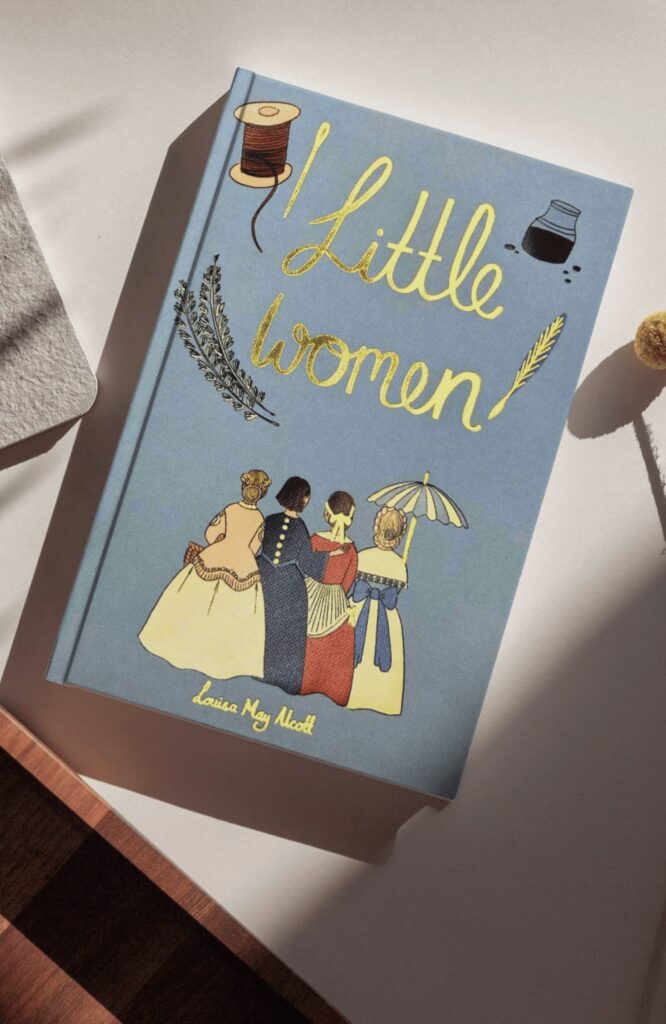
Little Women (Collector’s Edition)
Louisa May Alcott
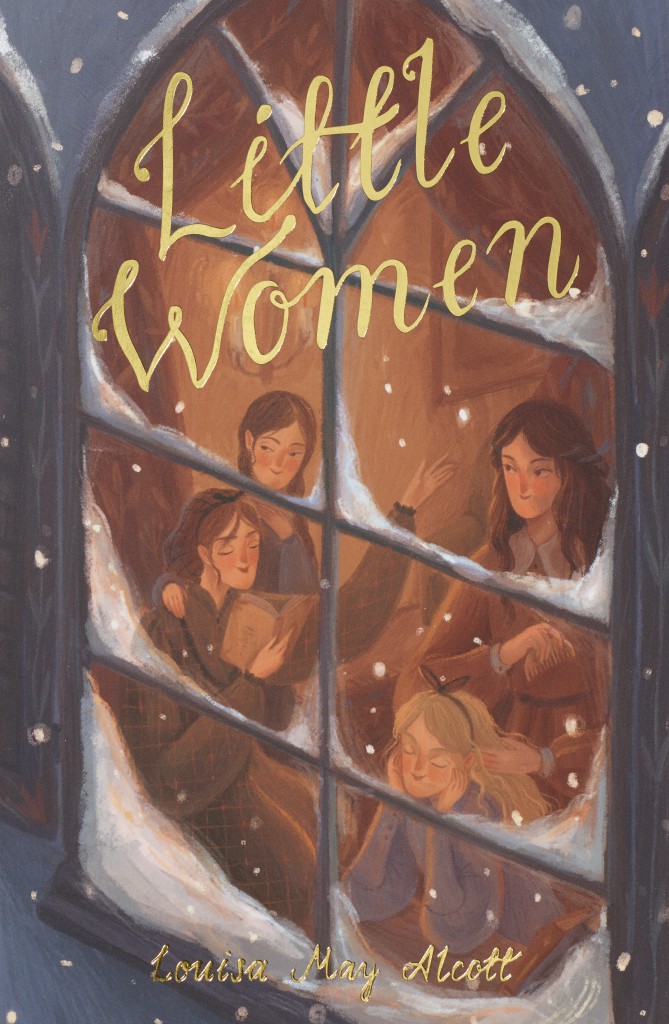
Little Women (Exclusive)
Louisa May Alcott

Little Women & Good Wives (Children’s)
Louisa May Alcott
